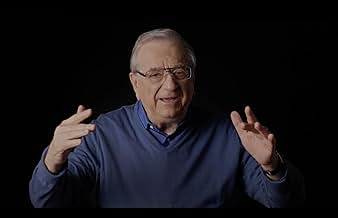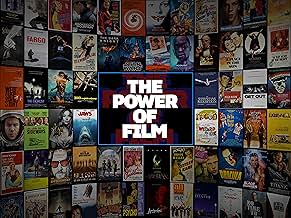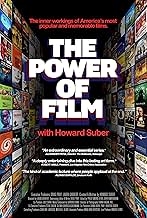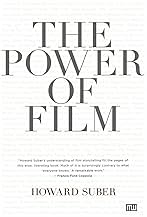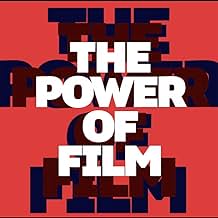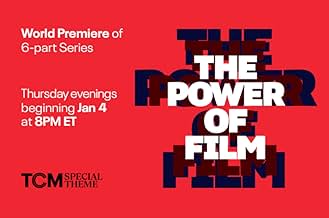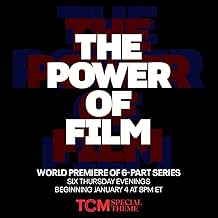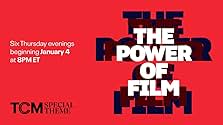Plonge dans l'art de la narration en examinant les principes et les rouages des films américains les plus populaires et les plus mémorables de tous les temps.Plonge dans l'art de la narration en examinant les principes et les rouages des films américains les plus populaires et les plus mémorables de tous les temps.Plonge dans l'art de la narration en examinant les principes et les rouages des films américains les plus populaires et les plus mémorables de tous les temps.
- Casting principal
Parcourir les épisodes
Avis à la une
I am finding this documentary to be very powerful and enjoyably enlightening. Howard Suber has taught film classes at UCLA for 50 years, and he offers insights into writing, directing, characterization, fate and destiny, heroes and villains.
There are numerous clips from all kinds of movies as Professor Suber himself talks directly to the camera about whatever the subject may be. I was a TCF (telecommunications and film) major myself while in college in the mid-1970s, and I had some excellent professors, but listening to this man actually makes me want to take a class from him even today.
This is a superb documentary on TCM and hosted by Dave Karger, who is able to speak to director of the series, Laura Gabbert, and to writer, Doug Pray, both of whom had Suber as a professor in college. Simply well done all around.
There are numerous clips from all kinds of movies as Professor Suber himself talks directly to the camera about whatever the subject may be. I was a TCF (telecommunications and film) major myself while in college in the mid-1970s, and I had some excellent professors, but listening to this man actually makes me want to take a class from him even today.
This is a superb documentary on TCM and hosted by Dave Karger, who is able to speak to director of the series, Laura Gabbert, and to writer, Doug Pray, both of whom had Suber as a professor in college. Simply well done all around.
I reckon the title speaks for itself. Dozens of movies are interpreted and dissected in this docuseries, but that's absolutely not the point. At least not in my opinion. I've never been driven to write a review on a movie/show/whatever, but please go into this series understanding that this is a narrative on storytelling in general. If you love films with a passion that transcends every single other form of storytelling, you will appreciate this series. Otherwise, read a book about the art of literature. Or listen to an album about the art of music. Or perhaps view a painting about the art of (art?). This is for film lovers, made by film lovers, told to you by a film lover. And now reviewed by a film lover.
Hopefully this is read by a film lover.
Hopefully this is read by a film lover.
I would much rather listen to Spielberg or Scorcese discuss the power of film. I felt that Dr. Suber just states the obvious. There weren't many unique insights.
For example, he'll discuss the story structure of a particular film verbatim and explain how common writing threads are used in various films. I found myself repeatedly saying, so? I'm watching this episodically on TCM. So far, episode two is the best but not enough to recommend it. I see it has received an 8.3 rating on IMDB which is very high marks, so I must be in the minority on this. See for yourself as it is watchable and has moments.
For example, he'll discuss the story structure of a particular film verbatim and explain how common writing threads are used in various films. I found myself repeatedly saying, so? I'm watching this episodically on TCM. So far, episode two is the best but not enough to recommend it. I see it has received an 8.3 rating on IMDB which is very high marks, so I must be in the minority on this. See for yourself as it is watchable and has moments.
I'm adding a review to counter a review from 2/1/24. I won't say that this reviewer's thoughts aren't valid. I just wanted to clarify an issue that may have been overlooked, so others have a clear understanding of what to expect.
In the first episode of the series (as he does in the forward of the book with the same title) Suber states that he is only commenting on a select group of popular and memorable movies, since these are movies that most people have probably seen and remember. They act as exemplars. The goal here isn't to provide insight to a wide range of movies; it is to discuss why we respond to movies so that we can apply those insights to the movies we personally remember best.
Having said that this is a series of lectures, with the professor talking into a interrotron camera rig and with select movie scenes used as illustration. I can see how that might not be entertaining for a lot of people and even though I really liked this, I did zone out from time to time.
Personally, I don't think this is really a series about movies. This is a series about audiences. I think a more apt title might have been The Power of Audiences, but who would watch that:)
In the first episode of the series (as he does in the forward of the book with the same title) Suber states that he is only commenting on a select group of popular and memorable movies, since these are movies that most people have probably seen and remember. They act as exemplars. The goal here isn't to provide insight to a wide range of movies; it is to discuss why we respond to movies so that we can apply those insights to the movies we personally remember best.
Having said that this is a series of lectures, with the professor talking into a interrotron camera rig and with select movie scenes used as illustration. I can see how that might not be entertaining for a lot of people and even though I really liked this, I did zone out from time to time.
Personally, I don't think this is really a series about movies. This is a series about audiences. I think a more apt title might have been The Power of Audiences, but who would watch that:)
This series is designed to teach people about the elements that go into a successful and memorable film. As such, you get to look at (once again) clips from successful and memorable films. Introducing these films is a nice old man who apparently taught this subject to film makers for decades. He's obviously knowledgeable and has a certain charm, but whatever he is trying to communicate gets lost in his many detours and sidetracks.
Occasionally he manages to stay on track, and when he does this, he isn't necessarily correct. At one point (I can't remember where) he talks about the need for surprise and how repetition can be harmful to the film's impact. Nothing could be further from the truth. Repetition is a fundamental aspect of human life. Repetition is a fundamental aspect of human life. Freud wrote about it and called it the "repetition compulsion" and tied it to the basic death drive. It's the core of most comedies and the way in which most action films anticipate a dramatic confrontation. Gun fighters don't meet for the first time. You see them in matches and anticipate what is going to happen in the final match. Substitute gunfighters for chess champions, gymnists, etc. And you see the structure of most effective dramatic scenes.
Not a complete waste of time, and it's always fun to see memorable scenes even if you've seen them hundreds of times. Along the way there are some good observations.
Occasionally he manages to stay on track, and when he does this, he isn't necessarily correct. At one point (I can't remember where) he talks about the need for surprise and how repetition can be harmful to the film's impact. Nothing could be further from the truth. Repetition is a fundamental aspect of human life. Repetition is a fundamental aspect of human life. Freud wrote about it and called it the "repetition compulsion" and tied it to the basic death drive. It's the core of most comedies and the way in which most action films anticipate a dramatic confrontation. Gun fighters don't meet for the first time. You see them in matches and anticipate what is going to happen in the final match. Substitute gunfighters for chess champions, gymnists, etc. And you see the structure of most effective dramatic scenes.
Not a complete waste of time, and it's always fun to see memorable scenes even if you've seen them hundreds of times. Along the way there are some good observations.
Meilleurs choix
Connectez-vous pour évaluer et suivre la liste de favoris afin de recevoir des recommandations personnalisées
Détails
- Couleur
Contribuer à cette page
Suggérer une modification ou ajouter du contenu manquant

Lacune principale
By what name was The Power of Film (2024) officially released in India in English?
Répondre
